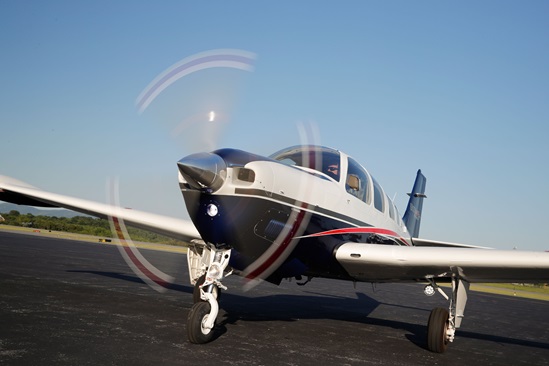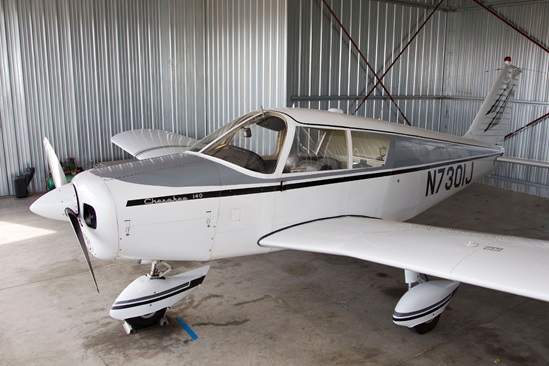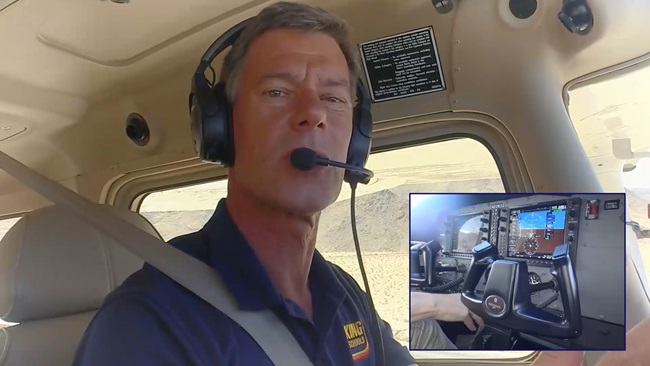Safety Spotlight: A kinder, gentler FAA
New policy is a move in the right direction
Many years ago, I was in Turkey with a group of friends who wanted to go scuba diving. I had never been diving before and did not have a Professional Association of Diving Instructors (PADI) or any other certification card. I went along for the ride just to hang out on the boat while my friends dove. After the group was under water, the Turkish dive master asked why I wasn’t taking part. I explained, “I’m not qualified.”
To my surprise, he replied, “I don’t care if you have a PADI card. This is Turkey—those stupid rules don’t apply here. You know how to breathe, don’t you? It’s fun. You should give it a try.”
Not knowing any better and without anyone left on the boat to talk me out of it, I did. After getting in over my head (pun intended), I realized how much trouble I was in. Luckily for me, one of my friends saw the expression of near-panic on my face and quickly guided me back to the surface.
My lapse in judgment almost got me into real trouble, but it was an honest mistake. Aviation is no different. All pilots, even experienced ones, make mistakes. Almost always, they learn, get better, and move on. I was reminded of my diving misadventure by a recent interview with FAA Administrator Michael Huerta. In the interview, Huerta discussed the FAA’s recent policy changes reflected in a new “Flight Standards Service Compliance Philosophy,” which attempts to resolve deviations by reserving the strongest responses for pilots whose behavior represents the greatest risk.
When you boil it down, pilots make two kinds of errors: honest mistakes and willful violations. The first occur when there’s a deviation, but the oversight was unintentional. The latter are a different story. These transgressions usually involve a deliberate choice to deviate from well-known rules that support safe flying.
One such deviation occurred in September 2015 outside Alma, Georgia. According to the NTSB preliminary report, an Experimental amateur-built Van’s RV–10 “was destroyed when it impacted trees following an uncontrolled descent” at about 3:42 a.m. The pilot/owner/builder and four passengers were killed. The report goes on to state that the pilot had been issued a third class medical certificate four years earlier, and at that time had reported 25 hours of total flight experience—but he did not hold a pilot certificate. This is an egregious example of a pilot who chose to ignore the rules and put others in harm’s way: first by flying without a certificate, and then by putting five adults in a four-seat airplane. FAA enforcement action was not required as the pilot (and his unfortunate passengers) paid with their lives.
The FAA’s new policy makes a distinction between willful violations, such as this, and honest mistakes. It’s Huerta’s intention to have the FAA move away from an enforcement policy that has—by the agency’s own admission—“caused pilots to hide transgressions because they’re afraid they will be punished.”
“When deviations from regulatory standards occur, the FAA’s goal is to use the most effective means to return an individual that holds an FAA certificate or license to full compliance, and to prevent recurrence,” he said. This is a much evolved way of thinking and one that recognizes some deviations arise from factors such as flawed procedures, simple mistakes, a lack of understanding, or diminished skills. Nobody is perfect. I applaud Huerta for this bold policy change. Bravo Zulu, sir! This really is a big deal, and he said as much by noting, “This is a big cultural change, not just for us at the FAA, but across the entire industry.”
I believe safety has four major components: culture, mindset, practice, and procedures. This new policy addresses all four in a positive way. It allows FAA safety inspectors to use good judgment and determine the difference between a mistake and a deliberate rule violation. They can then work with pilots to collect needed safety data, determine the root cause of a deviation, and share the information so others may learn. Meanwhile, if pilots make an honest mistake, the policy change allows for corrective actions such as remedial training, so that they can share their experiences with others and get back in the air as better, safer pilots.
These latest safety philosophies recognize that honest mistakes happen to all of us, and that they should not be viewed as a failure but as “learning in progress.” Mistakes only become lessons learned when they are shared widely. In order for this to happen, there has to be a system in place that encourages sharing and removes the fear of reprisal for mistakes. It’s very encouraging to see the FAA move in this direction because, if done correctly, it will change aviation’s culture and support future safety improvements.
Email [email protected]
George Perry is senior vice president of the AOPA Air Safety Institute.


